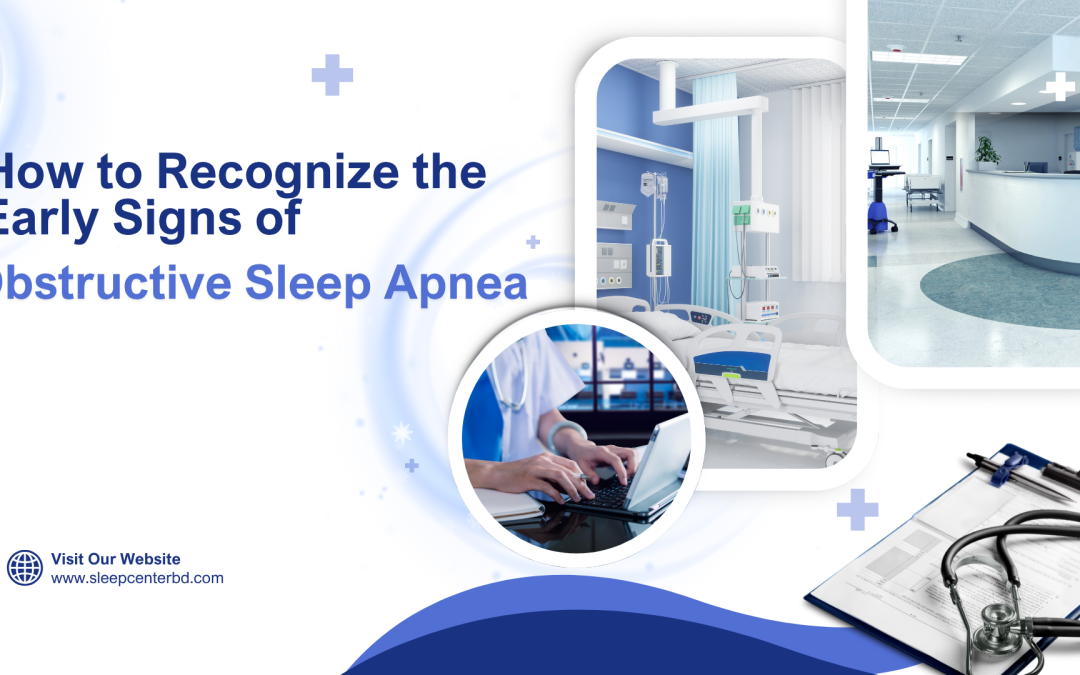Sleep is crucial for both our mental and physical well-being. However, when sleep is frequently interrupted by breathing issues, it may be a sign of a serious condition called Obstructive Sleep Apnea (OSA). Recognizing the early symptoms is the first step toward a healthier life. Let’s explore what OSA is, its causes, symptoms, risks, and treatment options.
What is Obstructive Sleep Apnea?
Obstructive Sleep Apnea is a common yet potentially serious sleep disorder in which breathing repeatedly stops and starts during sleep due to a blockage in the upper airway. These blockages occur when the throat muscles relax excessively, causing the airway to collapse and leading to breathing interruptions that last from a few seconds to several minutes or more.
Common Causes Behind Sleep Apnea
Several factors contribute to the development of obstructive sleep apnea:
- Obesity: Excess fat around the neck can obstruct airways.
- Enlarged tonsils or adenoids are especially common in children.
- Nasal congestion: Chronic issues may contribute to breathing difficulties.
- Age and gender: Middle-aged and older men are at a higher risk.
- Genetic predisposition: A family history increases the risk.
The Impact of Sleep Apnea on Your Health
If left untreated, OSA can lead to a range of health complications, including:
- High blood pressure
- Heart disease and stroke
- Type 2 diabetes
- Memory problems and mood changes
- Decreased daytime alertness, increasing accident risks
Early Symptoms: How to Spot Obstructive Sleep Apnea
Recognizing the early warning signs of OSA is crucial for early diagnosis and treatment. Common symptoms include:
- Loud, chronic snoring
- Episodes of choking or gasping during sleep
- Excessive daytime sleepiness (hypersomnia)
- Morning headaches
- Trouble concentrating or forgetfulness
- Waking up with a dry mouth or sore throat
Why Snoring Could Be a Sign of Sleep Apnea
Snoring is often dismissed as a harmless annoyance, but it’s one of the most common signs of obstructive sleep apnea (OSA). Unlike occasional snoring, sleep apnea-related snoring is loud, frequent, and often punctuated by gasping or choking sounds as the person struggles to breathe. If your partner notices these patterns, it’s time to seek medical advice.
Fatigue and Sleep Apnea: More Than Just Tiredness
Feeling tired despite getting a whole night’s sleep? Chronic fatigue is more than just being tired—it can be a result of disrupted sleep cycles caused by apnea. The body never enters deep, restorative sleep, leading to ongoing exhaustion, irritability, and poor concentration.
How to Talk to Your Doctor About Sleep Apnea
If you suspect you have sleep apnea, don’t hesitate to consult a sleep specialist. Prepare by:
- Keeping a sleep diary noting symptoms
- Recording any snoring or choking sounds
- Listing daytime symptoms like fatigue or headaches
- Sharing your medical history and lifestyle habits
Sleep studies (either at home or in a lab) are often recommended for accurate diagnosis.
Risk Factors That Increase Your Chances of Sleep Apnea
Certain risk factors make you more susceptible to OSA, including:
- Obesity
- Neck circumference (thicker necks can narrow airways)
- Male gender
- Age over 40
- Smoking and alcohol use
- Family history of sleep apnea
- Use of sedatives or tranquilizers
The Link Between Sleep Apnea and Heart Health
Obstructive Sleep Apnea places tremendous stress on your cardiovascular system. Each time breathing stops, oxygen levels drop, causing a spike in blood pressure. Over time, this increases the risk of:
- Heart attacks
- Arrhythmias
- Stroke
- Heart failure
Proper treatment of OSA significantly lowers these risks.
Treatment Options: From CPAP to Surgery
The good news is that OSA is ta reatable. condition Standard treatment options include:
- CPAP Therapy: A Continuous Positive Airway Pressure machine keeps airways open by delivering constant airflow during sleep.
- Lifestyle Changes: Weight loss, quitting smoking, and reducing alcohol intake.
- Oral Appliances: Custom devices that reposition the jaw and tongue.
- Surgery: In severe cases, procedures may be required to remove excess tissue or correct structural issues in the airway.
Final Thoughts
Early recognition of Obstructive Sleep Apnea symptoms can be life-changing and even lifesaving. If you or a loved one experience chronic snoring, daytime fatigue, or interrupted breathing during sleep, don’t ignore the signs. Consult a sleep specialist at SleepCenterBD.com to get evaluated and take control of your sleep health.

